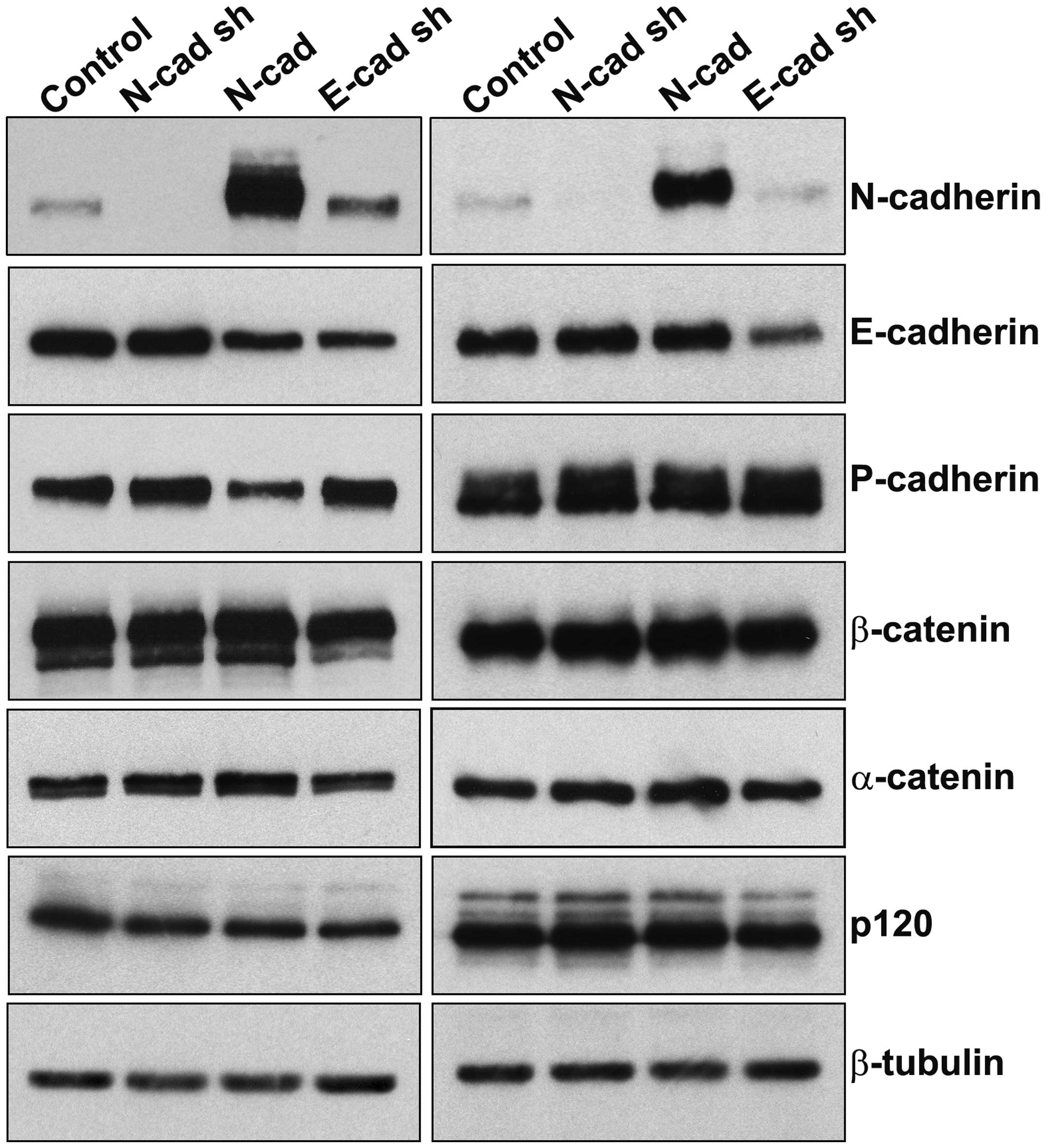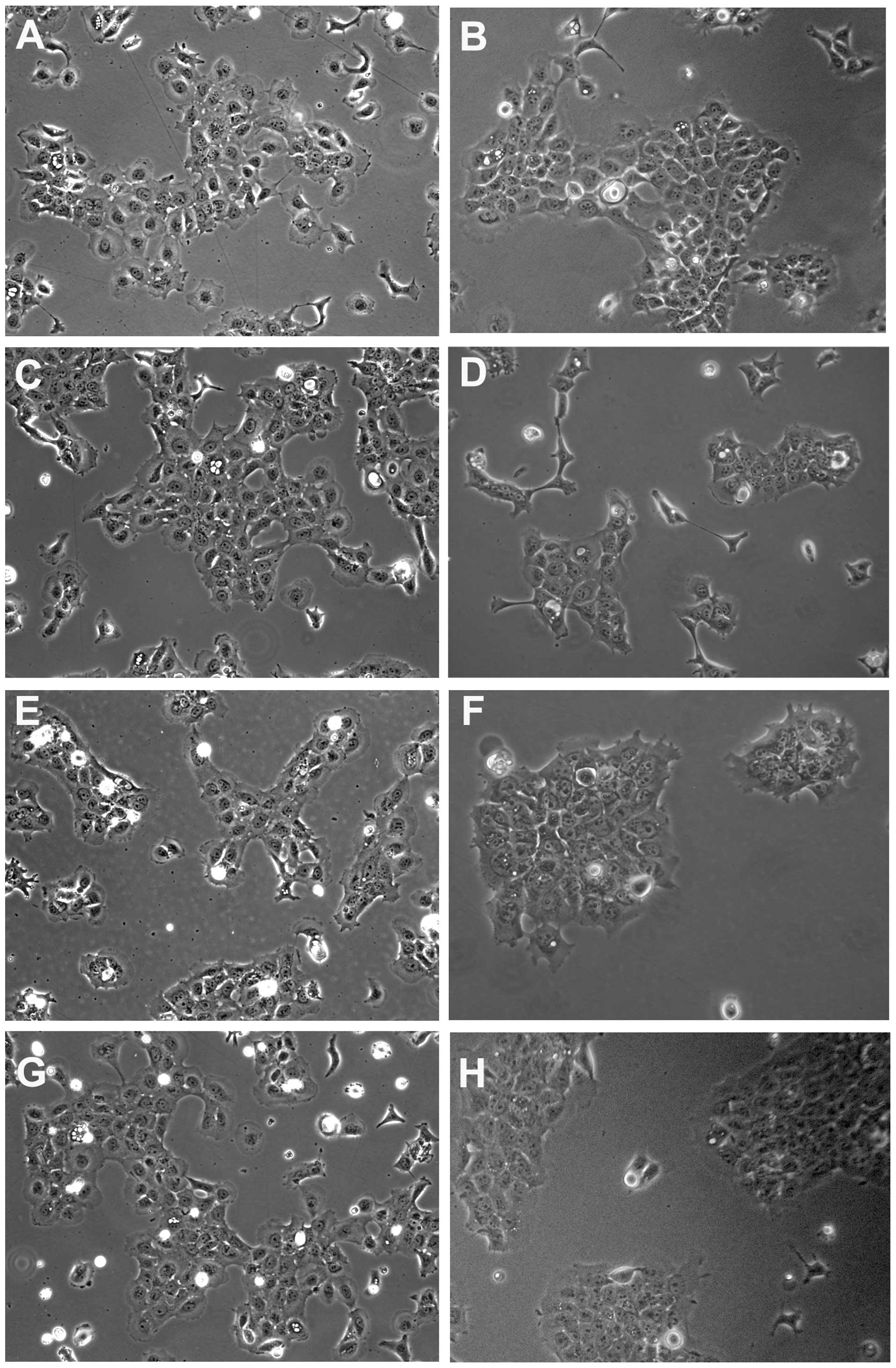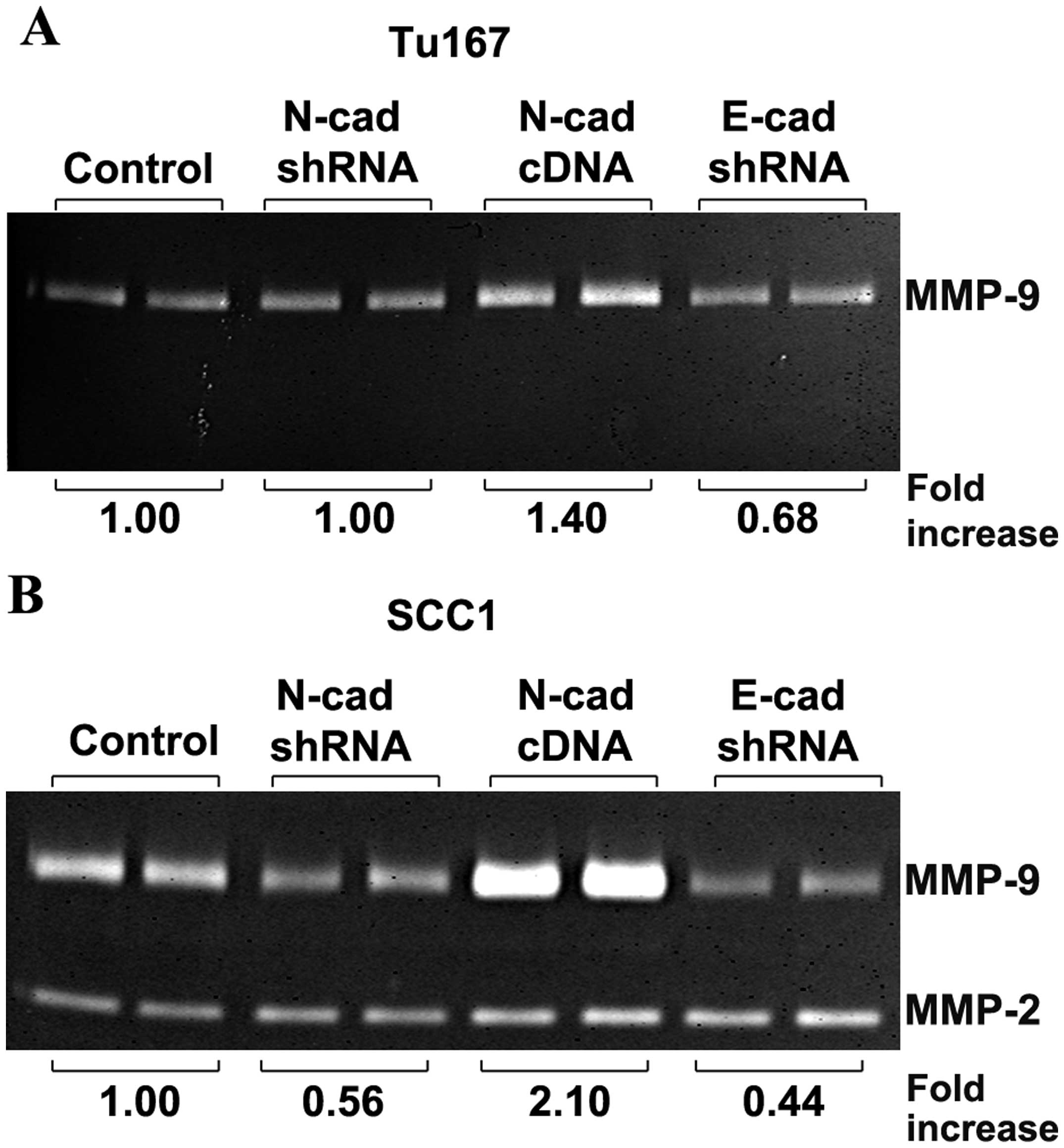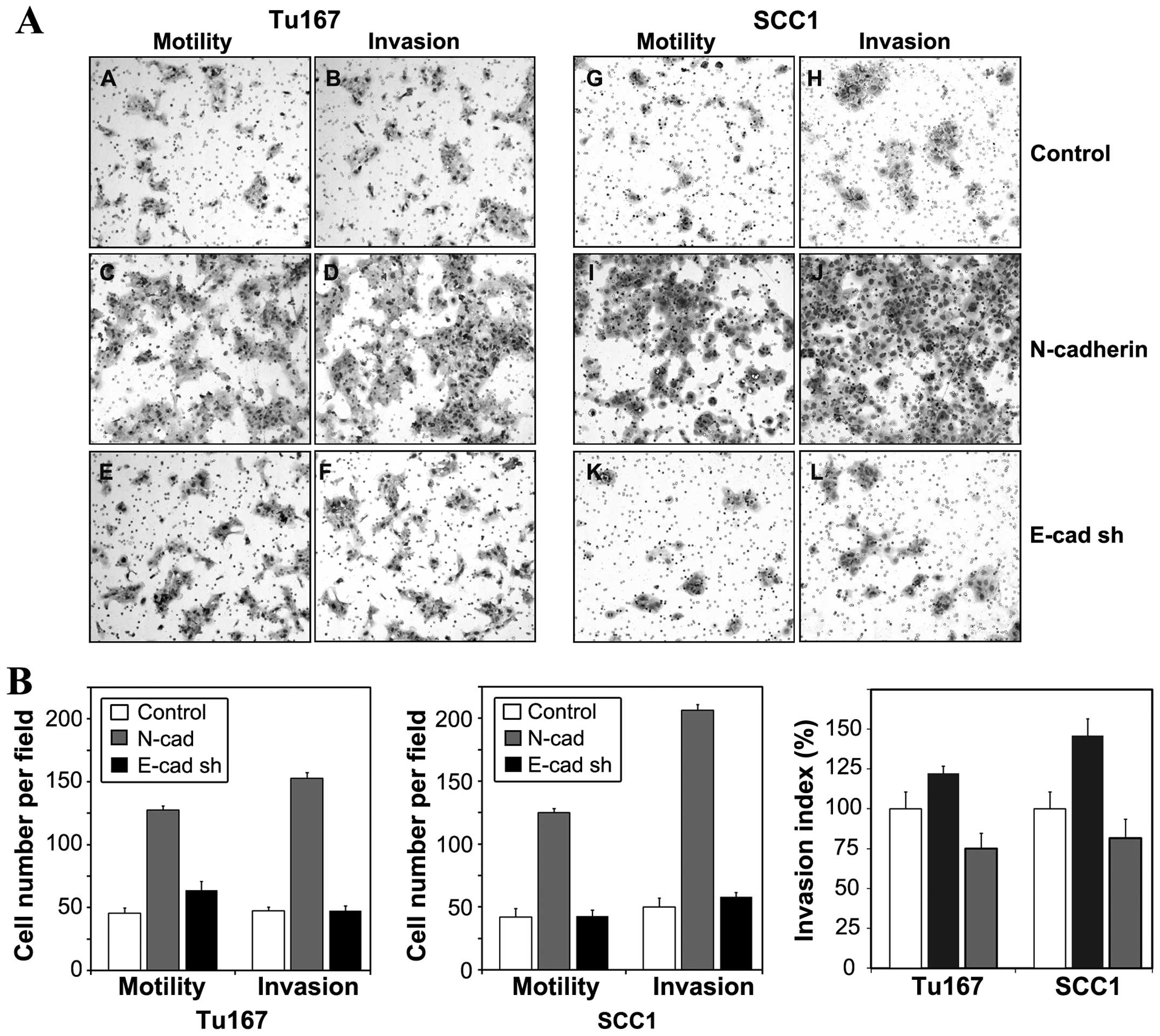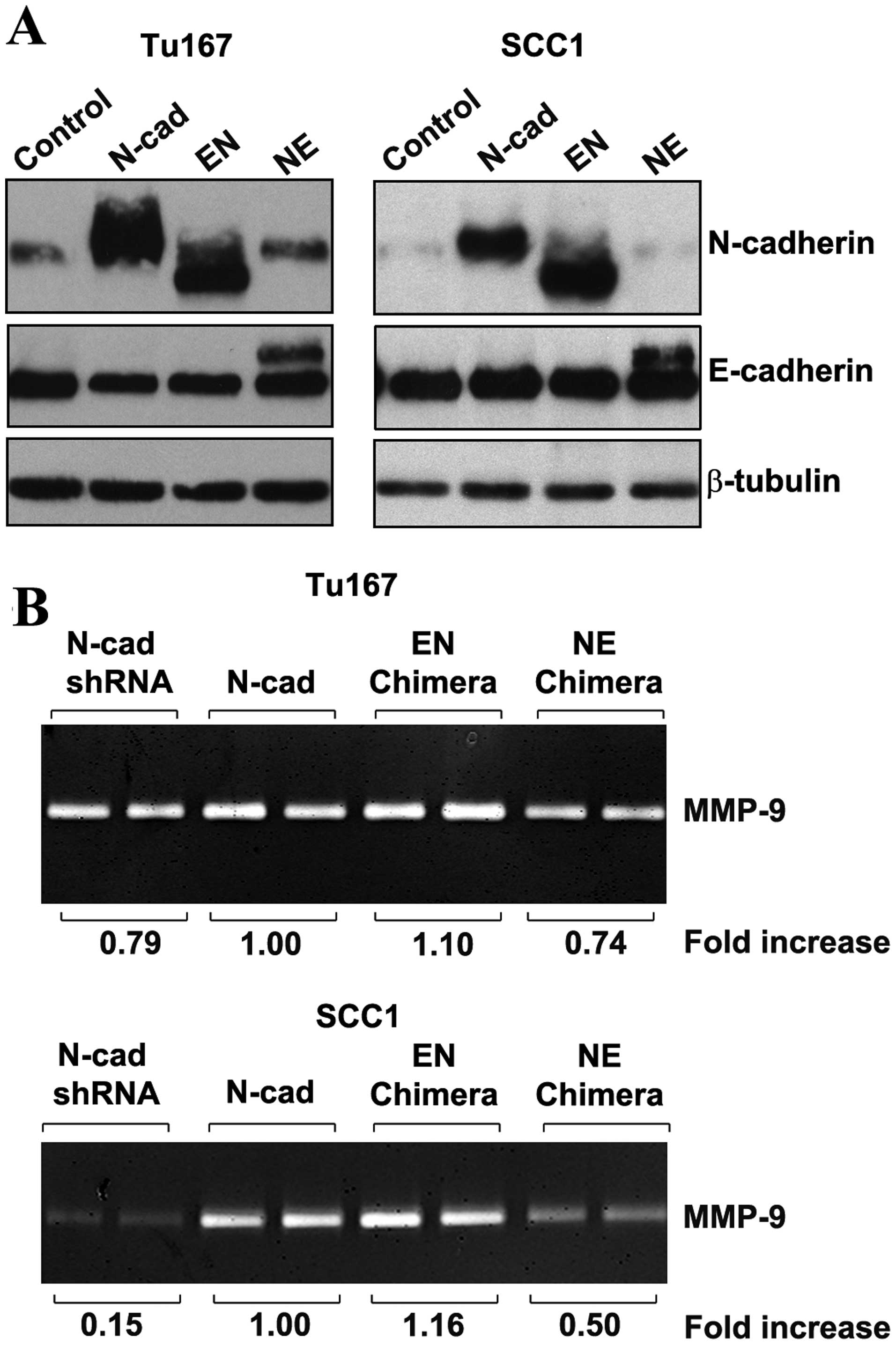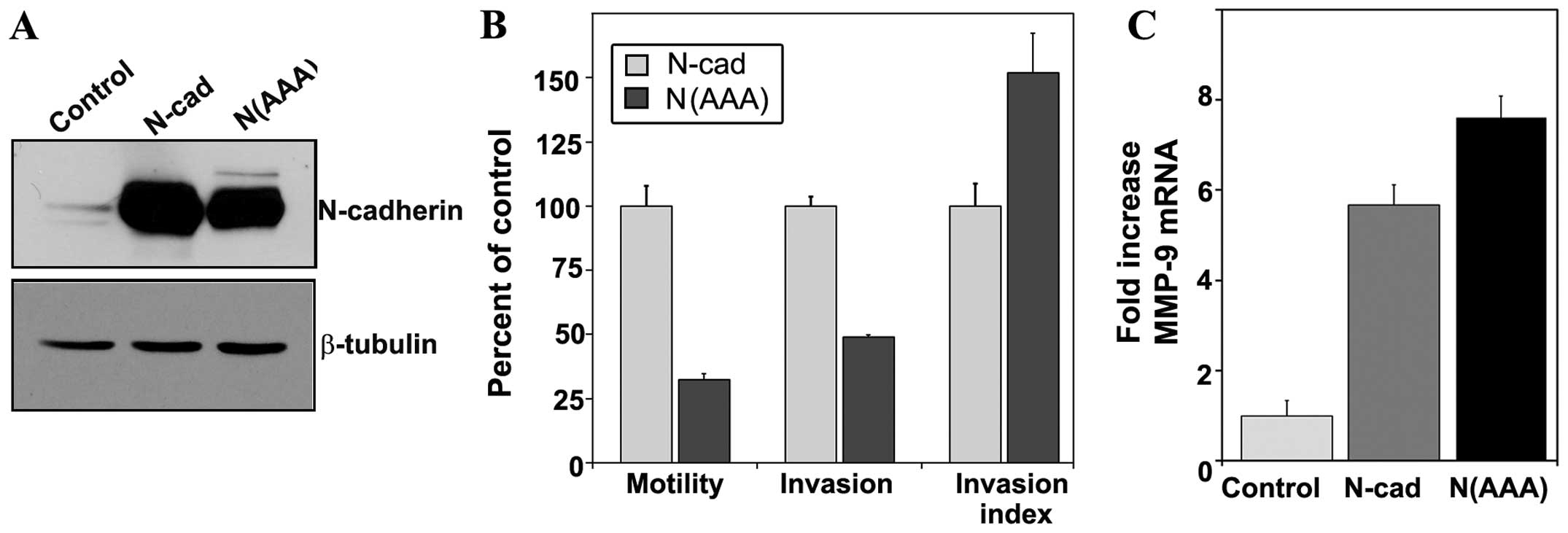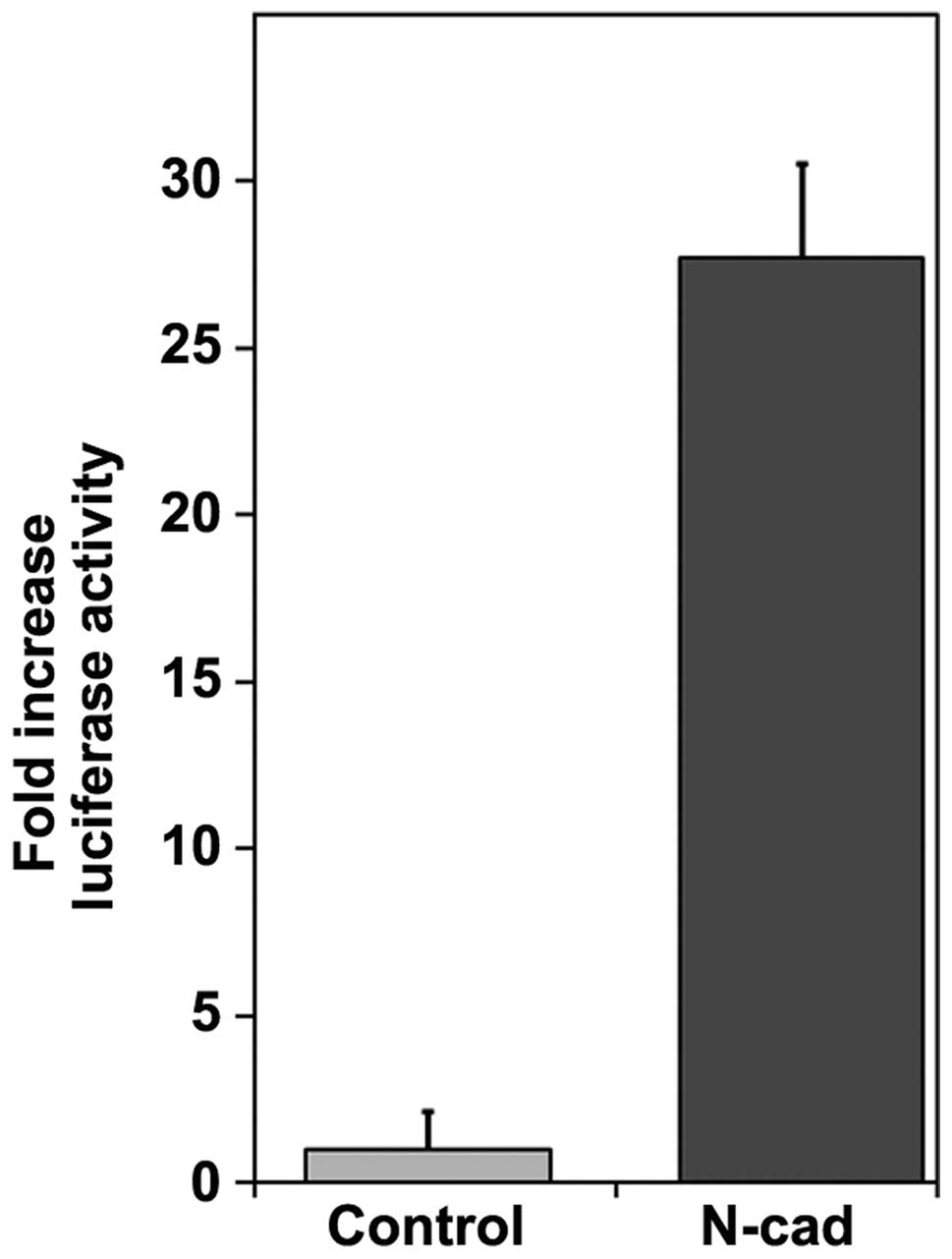|
1
|
Jemal A, Bray F, Center MM, Ferlay J, Ward
E and Forman D: Global cancer statistics. CA Cancer J Clin.
61:69–90. 2011. View Article : Google Scholar
|
|
2
|
Warnakulasuriya S: Global epidemiology of
oral and oropharyngeal cancer. Oral oncol. 45:309–316. 2009.
View Article : Google Scholar
|
|
3
|
Siegel R, Naishadham D and Jemal A: Cancer
statistics, 2013. CA Cancer J Clin. 63:11–30. 2013. View Article : Google Scholar
|
|
4
|
Savagner P: Leaving the neighborhood:
molecular mechanisms involved during epithelial-mesenchymal
transition. Bioessays. 23:912–923. 2001. View Article : Google Scholar
|
|
5
|
Takeichi M: Cadherins in cancer:
implications for invasion and metastasis. Curr Opin Cell Biol.
5:806–811. 1993. View Article : Google Scholar : PubMed/NCBI
|
|
6
|
Birchmeier W and Behrens J: Cadherin
expression in carcinomas: role in the formation of cell junctions
and the prevention of invasiveness. Biochim Biophys Acta.
1198:111994.PubMed/NCBI
|
|
7
|
Hazan RB, Qiao R, Keren R, Badano I and
Suyama K: Cadherin switch in tumor progression. Ann NY Acad Sci.
1014:155–163. 2004. View Article : Google Scholar : PubMed/NCBI
|
|
8
|
Wheelock MJ, Shintani Y, Maeda M, Fukumoto
Y and Johnson KR: Cadherin switching. J Cell Sci. 121:727–735.
2008. View Article : Google Scholar : PubMed/NCBI
|
|
9
|
Kim JB, Islam S, Kim YJ, Prudoff R, Sass
K, Wheelock M and Johnson K: N-Cadherin extracellular repeat 4
mediates epithelial to mesenchymal transition and increased
motility. J Cell Biol. 151:1193–1206. 2000. View Article : Google Scholar : PubMed/NCBI
|
|
10
|
Nieman MT, Prudoff RS, Johnson KR and
Wheelock MJ: N-cadherin promotes motility in human breast cancer
cells regardless of their E-cadherin expression. J Cell Biol.
147:631–644. 1999. View Article : Google Scholar : PubMed/NCBI
|
|
11
|
Rieger-Christ KM, Lee P, Zagha R, et al:
Novel expression of N-cadherin elicits in vitro bladder cell
invasion via the Akt signaling pathway. Oncogene. 23:4745–4753.
2004. View Article : Google Scholar : PubMed/NCBI
|
|
12
|
Nagi C, Guttman M, Jaffer S, et al:
N-cadherin expression in breast cancer: correlation with an
aggressive histologic variant-invasive micropapillary carcinoma.
Breast Cancer Res Treat. 94:225–235. 2005. View Article : Google Scholar : PubMed/NCBI
|
|
13
|
Nguyen PT, Kudo Y, Yoshida M, Kamata N,
Ogawa I and Takata T: N-cadherin expression is involved in
malignant behavior of head and neck cancer in relation to
epithelial-mesenchymal transition. Histol Histopathol. 26:147–156.
2011.PubMed/NCBI
|
|
14
|
Di Domenico M, Pierantoni G, Feola A, et
al: Prognostic significance of N-cadherin expression in oral
squamous cell carcinoma. Anticancer Res. 31:4211–4218.
2011.PubMed/NCBI
|
|
15
|
Zhao D, Tang XF, Yang K, Liu JY and Ma XR:
Over-expression of integrin-linked kinase correlates with aberrant
expression of Snail, E-cadherin and N-cadherin in oral squamous
cell carcinoma: implications in tumor progression and metastasis.
Clin Exp Metastasis. 29:957–969. 2012. View Article : Google Scholar : PubMed/NCBI
|
|
16
|
Folgueras AR, Pendás AM, Sánchez LM and
López-Otín C: Matrix metalloproteinases in cancer: from new
functions to improved inhibition strategies. Int J Dev Biol.
48:411–424. 2004. View Article : Google Scholar : PubMed/NCBI
|
|
17
|
Katayama A, Bandoh N, Kishibe K, Takahara
M, Ogino T, Nonaka S and Harabuchi Y: Expressions of matrix
metalloproteinases in early-stage oral squamous cell carcinoma as
predictive indicators for tumor metastases and prognosis. Clin
Cancer Res. 10:634–640. 2004. View Article : Google Scholar : PubMed/NCBI
|
|
18
|
Patel BP, Shah PM, Rawal UM, Rawal UM,
Desai AA, Shah SV, Rawal RM and Patel PS: Activation of MMP-2 and
MMP-9 in patients with oral squamous cell carcinoma. J Surg Oncol.
90:81–88. 2005. View Article : Google Scholar : PubMed/NCBI
|
|
19
|
Suyama K, Shapiro I, Guttman M and Hazan
RB: A signaling pathway leading to metastasis is controlled by
N-cadherin and the FGF receptor. Cancer Cell. 2:301–314. 2002.
View Article : Google Scholar : PubMed/NCBI
|
|
20
|
Munshi HG, Ghosh S, Mukhopadhyay S, et al:
Proteinase suppression by E-cadherin-mediated cell-cell attachment
in premalignant oral keratinocytes. J Biol Chem. 277:38159–38167.
2002. View Article : Google Scholar : PubMed/NCBI
|
|
21
|
Nawrocki-Raby B, Gilles C, Polette M, et
al: E-Cadherin mediates MMP down-regulation in highly invasive
bronchial tumor cells. Am J Pathol. 163:653–661. 2003. View Article : Google Scholar : PubMed/NCBI
|
|
22
|
Wong AST and Gumbiner BM:
Adhesion-independent mechanism for suppression of tumor cell
invasion by E-cadherin. J Cell Biol. 161:1191–1203. 2003.
View Article : Google Scholar : PubMed/NCBI
|
|
23
|
Yanagisawa M and Anastasiadis PZ: p120
catenin is essential for mesenchymal cadherin-mediated regulation
of cell motility and invasiveness. J Cell Biol. 174:1087–1096.
2006. View Article : Google Scholar : PubMed/NCBI
|
|
24
|
Hazan RB, Phillips GR, Qiao RF, Norton L
and Aaronson SA: Exogenous expression of N-cadherin in breast
cancer cells induces cell migration, invasion, and metastasis. J
Cell Biol. 148:779–790. 2000. View Article : Google Scholar : PubMed/NCBI
|
|
25
|
Myers JN, Holsinger FC, Jasser SA, Bekele
BN and Fidler IJ: An orthotopic nude mouse model of oral tongue
squamous cell carcinoma. Clin Cancer Res. 8:293–298.
2002.PubMed/NCBI
|
|
26
|
Brenner JC, Graham MP, Kumar B, et al:
Genotyping of 73 UM-SCC head and neck squamous cell carcinoma cell
lines. Head Neck. 32:417–426. 2010.PubMed/NCBI
|
|
27
|
Tamura I, Sakaki T, Chaqour B, Howard PS,
Ikeo T and Macarak EJ: Correlation of P-cadherin and β-catenin
expression and phosphorylation with carcinogenesis in rat tongue
cancer induced with 4-nitroquinoline 1-oxide. Oral Oncol.
39:506–514. 2003.
|
|
28
|
Kim YJ, Johnson KR and Wheelock MJ:
N-cadherin-mediated cell motility requires cis dimers. Cell Commun
Adhes. 12:23–39. 2005. View Article : Google Scholar : PubMed/NCBI
|
|
29
|
Chen H, Paradies NE, Fedor-Chaiken M and
Brackenbury R: E-cadherin mediates adhesion and suppresses cell
motility via distinct mechanisms. J Cell Sci. 110:345–356.
1997.PubMed/NCBI
|
|
30
|
Thoreson MA, Anastasiadis PZ, Daniel JM,
et al: Selective uncoupling of p120ctn from E-cadherin disrupts
strong adhesion. J Cell Biol. 148:189–202. 2000. View Article : Google Scholar : PubMed/NCBI
|
|
31
|
Maeda M, Johnson E, Mandal S, et al:
Expression of inappropriate cadherins by epithelial tumor cells
promotes endocytosis and degradation of E-cadherin via competition
for p120ctn. Oncogene. 25:4595–4604. 2006. View Article : Google Scholar : PubMed/NCBI
|
|
32
|
Maeda M, Johnson KR and Wheelock MJ:
Cadherin switching: essential for behavioral but not morphological
changes during an epithelium-to-mesenchyme transition. J Cell Sci.
118:873–887. 2005. View Article : Google Scholar : PubMed/NCBI
|
|
33
|
Leber TM and Balkwill FR: Zymography: a
single-step staining method for quantitation of proteolytic
activity on substrate gels. Anal Biochem. 249:24–28. 1997.
View Article : Google Scholar : PubMed/NCBI
|
|
34
|
Islam S, Carey TE, Wolf GT, Wheelock MJ
and Johnson KR: Expression of N-cadherin by human squamous
carcinoma cells induces a scattered fibroblastic phenotype with
disrupted cell-cell adhesion. J Cell Biol. 135:1643–1654. 1996.
View Article : Google Scholar : PubMed/NCBI
|
|
35
|
Anastasiadis PZ and Reynolds AB: The p120
catenin family: complex roles in adhesion, signaling and cancer. J
Cell Sci. 113:1319–1334. 2000.PubMed/NCBI
|
|
36
|
Clevers H: Wnt/β-catenin signaling in
development and disease. Cell. 127:469–480. 2006.
|
|
37
|
Behrens J: Control of β-catenin signaling
in tumor development. Ann NY Acad Sci. 910:21–35. 2000.
|
|
38
|
Korinek V, Barker N, Morin PJ, et al:
Constitutive transcriptional activation by a β-catenin-Tcf complex
in APC−/− colon carcinoma. Science. 275:1784–1787. 1997.
|
|
39
|
Wu B, Crampton SP and Hughes CC: Wnt
signaling induces matrix metalloproteinase expression and regulates
T cell transmigration. Immunity. 26:227–239. 2007. View Article : Google Scholar : PubMed/NCBI
|
|
40
|
Crampton SP, Wu B, Park EJ, et al:
Integration of the β-catenin-dependent Wnt pathway with integrin
signaling through the adaptor molecule Grb2. PLoS One.
4:e78412009.
|
|
41
|
Niessen CM and Gumbiner BM: The
juxtamembrane region of the cadherin cytoplasmic tail supports
lateral clustering, adhesive strengthening, and interaction with
p120ctn. J Cell Biol. 141:779–789. 1998. View Article : Google Scholar : PubMed/NCBI
|
|
42
|
Li S, Jiao J, Lu Z and Zhang M: An
essential role for N-cadherin and β-catenin for progression in
tongue squamous cell carcinoma and their effect on invasion and
metastasis of Tca8113 tongue cancer cells. Oncol Rep. 21:1223–1233.
2009.
|
|
43
|
Orsulic S, Huber O, Aberle H, Arnold S and
Kemler R: E-cadherin binding prevents beta-catenin nuclear
localization and beta-catenin/LEF-1-mediated transactivation. J
Cell Sci. 112:1237–1245. 1999.PubMed/NCBI
|
|
44
|
Gottardi CJ and Gumbiner BM: Distinct
molecular forms of β-catenin are targeted to adhesive or
transcriptional complexes. J Cell Biol. 167:339–349. 2004.
|
|
45
|
Howard S, Deroo T, Fujita Y and Itasaki N:
A positive role of cadherin in Wnt/β-catenin signalling during
epithelial-mesenchymal transition. PLoS One. 6:e238992011.
|
|
46
|
Zhang J, Shemezis JR, McQuinn ER, Wang J,
Sverdlov M and Chenn A: AKT activation by N-cadherin regulates
beta-catenin signaling and neuronal differentiation during cortical
development. Neural Dev. 8:72013. View Article : Google Scholar : PubMed/NCBI
|















